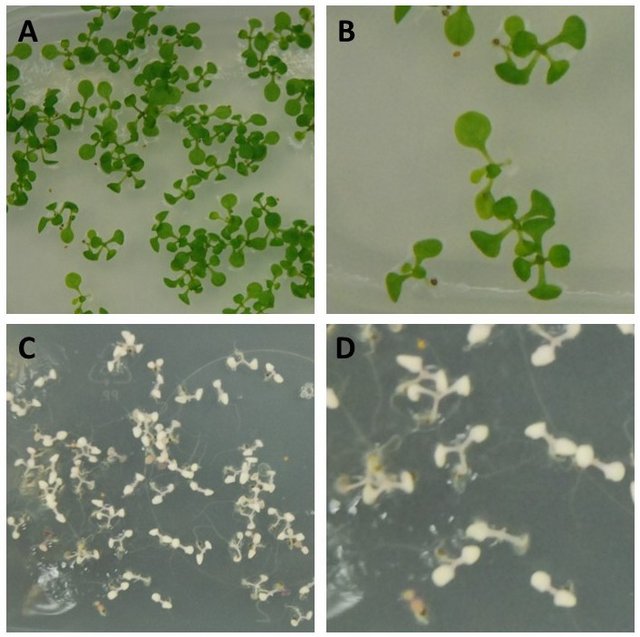The growth of plants depends on the energy production of chloroplasts and mitochondria, which are the power stations of plant cells. Most of the proteins that are important for the functionality of these two organelles, are nuclear-encoded. In order for the nucleus to be able to react to disruptions in the organelles, a steady communication between organelles and nucleus is necessary.
In this work, a treatment of seedlings of the model plant Arabidopsis thaliana with Spectinomycin blocked the differentiation of plastids into chloroplasts. As expected, this approach has led to the repression of nuclear genes encoding proteins involved in photosynthesis. However, genes encoding proteins that are involved in stress defence in mitochondria, were upregulated. This includes the WHIRLY2 gene. The mitochondrial WHIRLY2 protein belongs to a small family of DNA-binding proteins, of which WHIRLY1 is found in both plastids and the nucleus of the same cell. To investigate whether WHIRLY1 is involved in the altered expression of nuclear genes, appropriated mutants are required. In this work, it was shown that the existing why1-mutants are not knock-out mutants. To clarify the role of WHIRLY1 in the communication between organelles and nucleus, CRISPR/Cas mutants should be used.
___
Anike Schaller conducted this work at the Abteilung Biologie der Pflanzenzelle in the working group of Prof. Dr. Karin Krupinska.

